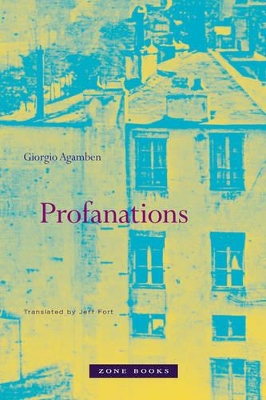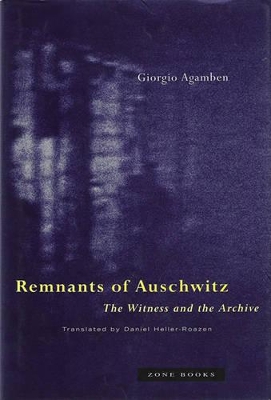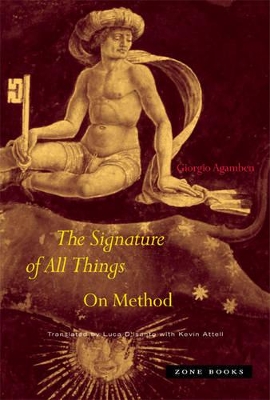Zone Books
3 total works
Essays by a provocative Italian philosopher on memory and oblivion, on what is lost and what remains.
The Italian philosopher Giorgio Agamben has always been an original reader of texts, understanding their many rich historical, aesthetic, and political meanings and effects. In Profanations, Agamben has assembled for the first time some of his most pivotal essays on photography, the novel, and film. A meditation on memory and oblivion, on what is lost and what remains, Profanations proves yet again that Agamben is one of the most provocative writers of our time. In ten essays, Agamben ponders a series of literary and philosophical problems: the relation among genius, ego, and theories of subjectivity; the problem of messianic time as explicated in both images and lived experience; parody as a literary paradigm; and the potential of magic to provide an ethical canon.
The range of topics and themes addressed here attest to the creativity of Agamben's singular mode of thought and his persistent concern with the act of witnessing, sometimes futile, sometimes earth-shattering. "In Praise of Profanity," the central essay of this short but dense book, confronts the question of profanity as the crucial political task of the moment. An act of resistance to every form of separation, the concept of profanation reorients perceptions of how power, consumption, and use interweave to produce an urgent political modality and desire: to profane the unprofanable. Agamben not only provides a new and potent theoretical model but describes it with a writerly style that itself forges inescapable links among literature, politics, and philosophy.
A philosophical study of the testimony of the survivors of Auschwitz.
In this book the Italian philosopher Giorgio Agamben looks closely at the literature of the survivors of Auschwitz, probing the philosophical and ethical questions raised by their testimony.
"In its form, this book is a kind of perpetual commentary on testimony. It did not seem possible to proceed otherwise. At a certain point, it became clear that testimony contained at its core an essential lacuna; in other words, the survivors bore witness to something it is impossible to bear witness to. As a consequence, commenting on survivors' testimony necessarily meant interrogating this lacuna or, more precisely, attempting to listen to it. Listening to something absent did not prove fruitless work for this author. Above all, it made it necessary to clear away almost all the doctrines that, since Auschwitz, have been advanced in the name of ethics."-Giorgio Agamben
The search to create a science of signatures that exceeds the attempts of semiology and hermeneutics to determine pure and unmarked signs.
The Signature of All Things is Giorgio Agamben's sustained reflection on method. To reflect on method implies for Agamben an archaeological vigilance: a persistent form of thinking in order to expose, examine, and elaborate what is obscure, unanalyzed, even unsaid, in an author's thought. To be archaeologically vigilant, then, is to return to, even invent, a method attuned to a "world supported by a thick weave of resemblances and sympathies, analogies and correspondences." Collecting a wide range of authors and topics in a slim but richly argued volume, Agamben enacts the search to create a science of signatures that exceeds the attempts of semiology and hermeneutics to determine the pure and unmarked signs that signify univocally, neutrally, and eternally. Three conceptual figures organize Agamben's argument and the advent of his new method: the paradigm, the signature, and archaeology. Each chapter is devoted to an investigation of one of these concepts and Agamben carefully constructs its genealogy transhistorically and from an interdisciplinary perspective. And at each moment of the text, Agamben pays tribute to Michel Foucault, whose methods he rethinks and effectively uses to reformulate the logic of the concepts he isolates. The Signature of All Things reveals once again why Agamben is one of the most innovative thinkers writing today.


